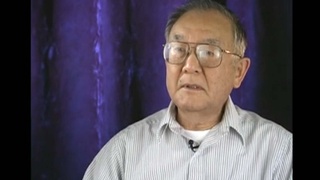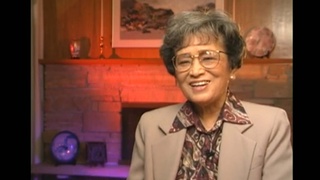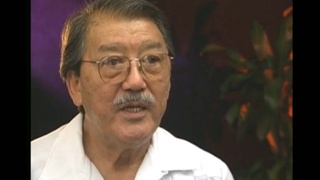Interviews
Recalling President Carter’s signing of the Commission bill
I was standing right behind the right shoulder of President Carter. He had a little three-by-five inch card in his hand, and I just glanced down. I thought he would have the whole card filled with statements. He only had about two or three words written there. But you know he spoke for quite a while and what he said was he was very—so he seemed to know the history of Japanese Americans and camp pretty well. I was rather surprised at the extent of the information that he had.
Date: July 1-2, 1998
Location: California, US
Interviewer: Mitchell Maki, Darcie Iki
Contributed by: Watase Media Arts Center, Japanese American National Museum
Explore More Videos

Evolving History
(1929 - 2014) One of the earliest proponents behind the redress movement.

Need for Monetary Compensation
(1923–2008) One of the leaders behind the redress movement.

Erasing the Bitterness
(1923–2008) One of the leaders behind the redress movement.



Duties of the Witness Chair
Chaired the Chicago JACL's Redress Committee.







Figuring out a dollar amount for redress
Judge, only Japanese American to serve on CWRIC.

Deciding to serve on the CWRIC
Judge, only Japanese American to serve on CWRIC.

On hearing of CWRIC selection from Senator Inouye
Judge, only Japanese American to serve on CWRIC.
